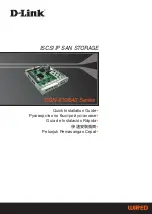
INSTRUCTION MANUAL CENTRAL COMMAND STATION MX10, MX10EC Page27
Meaning of the parameters in “VOLT & AMPERE detailed setting”,
for 1: (Track 1) and 2: (Track 2) in normal operation:
Running voltage
Range
10 V - 24 V
Default
16 V
Target voltage on the output track 1 bzw. track-2. This voltage is kept within a range of 1V; if this is
not possible, turn off “UND” (undervoltage, usually because of a too weak power supply unit).
Start-up voltage
Range
0.5 A - 16 A
Default the same as OVC threshold
During the start-up of a track output (starting up the system or restart after a short circuit) the start-up
voltage allows a higher current flow during the “start-up time” (see below) than allowed by the “OVC
threshold”, to charge the capacitors in the vehicles on the layout. The needed in-rush current for
standard vehicles usually lies between 100 - 300 mA, for non-standardised vehicles it can be even
higher.
Start-up time
Range
0 sec - 60 sec
Default
0 sec
When starting up the track output, the “start-up voltage” is taken into consideration instead of the
“OVC threshold” to identify overcurrent. This limit can force a reduction of the output voltage (which
rises slower); therefore the turn-off due to undervoltage is deactivated.
OVC threshold
Range
1 A - 12 A
Default
5 A (S-1), 3 A (S-2)
OVC = overcurrent. The current on the track output shall be limited to the “OVC threshold” defined
here, the output shall be turned off after the “OVC turn-off time” (see below). Only exception: within
the “resilience time” for the selected “resilience” (see parameters below) the current may be higher.
OVC turn-off time
Range
0.1 sec - 5 sec
Default
0.2 sec
When reaching the current threshold (currently active according to “adaptive OVC” or the absolute
limit according to “OVC threshold”), the track output is limited to the threshold - which is then used as
constant current - what leads to a forced reduction of the running voltage. The output is turned off if
the overcurrent is still present after the “OVC turn-off time” has run out. The turn-off time allows pass-
ing wrongly polarised frogs, by ignoring the short-time short circuits.
Adaptive OVC
Range
0.1 A - 6 A
Default
2 A
While the “OVC threshold” (see above) defines the maximum of current on each
output, the “adaptive OVC” defines how high the sudden rises in power consumption may be. After high
jumps the system shall be turned off, independent of the absolute limit.
OVC adaption time
Range
1 sec - 10 sec
(at least 5-fold turn-off time)
Default
2 sec
The height of the “Adaptive OVC’s” current jump is the difference between the elevated current
and the average current in the time before. The value is calculated in “Adaptive OVC”. This configura-
tion shall not be changed.
OVC permitted current
Range
0 A - 6 A
Default
0 A
The “OVC threshold” (i.e. the normally permitted track current, see above) may be surpassed for the
defined “OVC permitted time” (below) by the defined “OVC permitted current”. After this, the system
is shut down, applying the turn-off time (see above).
OVC permitted time
Range
0 sec - 60 sec
Default
0 sec
Period of time in which higher track current than defined in the OVC threshold is allowed. See de-
scription above (OVC permitted current).
Spark suppression
Range
OFF - LEV1 - LEV2
Default
LEV 2
Special circuits in the power amplifiers of the track outputs make sure that despite the high output
power in case of a short circuit, there are no sparks, also when passing a frog or at derailments.
Starting from the controller
No: the MX10 starts operation on track 1 with the last used (driving) configurations.
Yes: the MX10 starts operation on track 1 after the stopping state is confirmed on the controller
MX32. The programming track is not affected.
Meaning of the parameters in “VOLT & AMPERE detailed settings”,
for SERV (track 2 as programming track) and UPD (track 2 for decoder updates and sound loading)
SERV: Running voltage
Range
10 V - 24 V
Default
12 V
Target voltage on track output 2 during programming procedure in service mode (SERV PROG);
otherwise, the configuration for track 2 (“2.”) are valid.
SERV: OVC threshold
Range
400 mA, 1 A - 8 A
Default
400 mA
OVC = overcurrent. The current on the track output (track 2 in service mode) shall be limited to the
“OVC threshold”.
The configuration “400mA” largely corresponds to the standard defined by “RailCommunity” (VHDM)
RCN-216: The current consumption is limited to a relatively low value and furthermore controlled af-
ter 150 msec, if the current dropped to 100 mA. The programming procedure continues only under
these circumstances, otherwise the tracks are turned of. This is a traditional safety precaution on
programming tracks and shall prevent overheating and damage on possibly wrongfully connected
decoders.
Configurations 1 A, etc. do not have special time-dependent limitations; only while waiting for the
acknowledgement it switches to current limitation (300 mA) to attenuate the acknowledgement im-
pulse (so the loco doesn’t “jump”).
SERV: OVC turn-off time
Range
0.1 sec - 5 sec
Default
0.1 sec
Operating principle see description of track 1 and track 2. Due to the fact that usually no frogs are
passed when the track is used as programming track, this value is set very low.
UPD: Running voltage
Range
10 V - 24 V
Default
12 V
Target voltage on output track 2 during updating or sound loading procedure; otherwise the configu-
rations for track 2 are valid.
UPD: OVC threshold
Range
1 A - 8 A
Default
3 A
OVC = overcurrent. The current on the track output shall be limited to the here defines “OVC thresh-
old”.
UPD: OVC turn-off time
Range
0.1 sec - 5 sec
Default
0.1 sec
Operating principle see description of track 1 and track 2. Due to the fact that usually no frogs are
passed when the track is used as programming track, this value is set very low.
NOTE: concerning acknowledgement detection in SERV PROG:
The MX10 automatically controls, if the
standby current
of the vehicle on the programming track
after a programming or reading command
- within a certain time span (1 sec)
- falls beneath a certain value (100 mA beneath the set “SERV: OVC threshold”,
i.e. 300 mA, if OVC threshold is set to 400 mA by default),
- does not show strong fluctuations (less than 10 % of the standby current,
if the standby current is higher than 10 mA).
If this condition for the standby current is not fulfilled, the MX32 shows the following warning: „Max. Cur-
rent xxx A; WARNING: SERV - max. current not defined corresponding to standard”.
















































